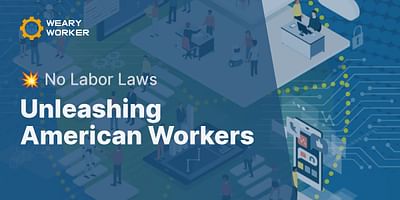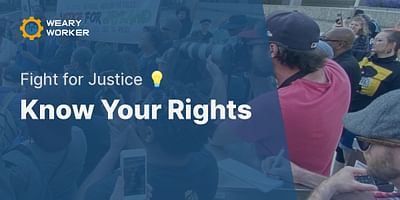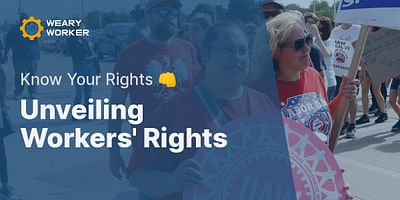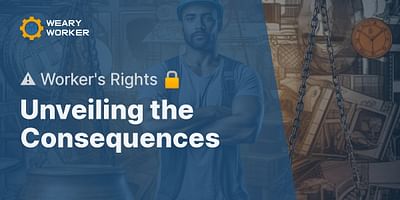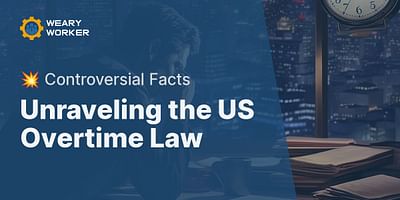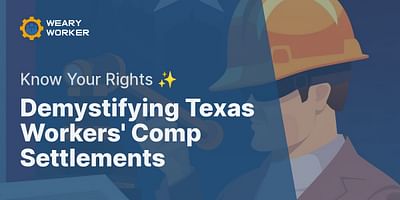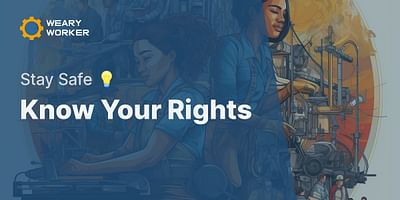Blake Lemke is a seasoned labor rights advocate who transitioned into writing after years of representing unions. His unique perspective, shaped by his experiences advocating for employees' rights, offers a unique twist to his writings. A resident of the sandy terrains of Nevada, Blake finds inspiration amidst the desert's serenity.
The Fair Labor Standards Act (FLSA) is a critical piece of legislation that has been protecting US workers since 1938. At its core, the FLSA sets the standards for minimum wage, overtime pay, record keeping, and child labor. Through these provisions, it safeguards workers from exploitation and ensures they receive fair compensation for their labor.
💰 Let's Talk Dollars: The Role of the FLSA in Setting Your Minimum Wage
The FLSA establishes a federal minimum wage, which is currently set at $7.25 per hour. This means that employers are legally obliged to pay their employees at least this amount for every hour worked. However, many states have their own minimum wage laws. If an employee is subject to both federal and state minimum wage laws, the employee is entitled to the higher of the two minimum wages. This ensures that workers are compensated at a rate that meets the basic cost of living.
⏰ Time is Money: How the FLSA Ensures You're Paid for Overtime
Under the FLSA, employees must receive overtime pay for hours worked over 40 in a workweek at a rate not less than time and one-half their regular rates of pay. This provision ensures that workers are fairly compensated for the extra hours they put in and discourages employers from overworking their employees.
📝 Keeping Track: The FLSA's Requirements for Employer Record Keeping
The FLSA requires employers to keep accurate records of employees' wages, hours, and other conditions of employment. This holds employers accountable and provides transparency, making it easier for employees to ensure they are being paid correctly.
👦👧 Protecting Our Future: The FLSA's Stance on Child Labor
The FLSA's child labor provisions are designed to protect the educational opportunities of minors and prohibit their employment in jobs that are detrimental to their health or safety. These rules ensure that work does not interfere with a child's education or harm their physical or mental well-being.
Fair Labor Standards Act Knowledge Test
Test your understanding of the Fair Labor Standards Act and its impact on US workers.
Learn more about Fair Labor Standards Act Knowledge Test 📝 or discover other Weary Worker quizzes.
The FLSA has been instrumental in shaping the US labor landscape, providing essential protections for workers that were not available before its enactment. However, it's important to note that not all employees are covered by the FLSA. To understand more about non-exempt and exempt employees, check out this article.
In conclusion, the Fair Labor Standards Act is a powerful tool in protecting workers' rights in the US. It sets standards for wages and hours, holds employers accountable, and ensures the safety of young workers. It's an essential part of US employment rights and has had a significant impact on improving working conditions across the country.
However, it's crucial for workers to know their rights and understand how these laws apply to them. If you're unsure if the FLSA protections apply to you, or you believe your rights have been violated, it's advisable to seek legal advice.
Do you believe the FLSA adequately protects workers' rights in the US?
Given the various provisions of the Fair Labor Standards Act (FLSA), such as minimum wage, overtime pay, record keeping, and child labor protections, do you think it sufficiently safeguards the rights of workers in the US?




